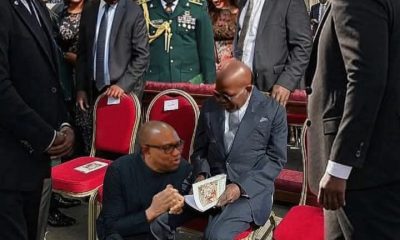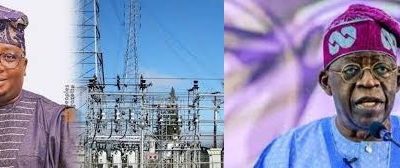FOREIGN NEWS
ECOWAS Court Throws Out NGOs’ Application Seeking Order Compelling Nigeria To Support Haiti’s Request To Join African Union
Two non-governmental organisations (NGOs) filed a case with the ECOWAS Court on March 14, 2024, asking the court to hold the Federal Republic of Nigeria accountable for denying the right to development of Africans living in the diaspora, especially those in Haiti. The application was denied.
The AU Summit in Addis Ababa in 2016 was the basis for the action, which the Applicants claimed would have allowed Haiti to benefit from continental development initiatives like the African Continental Free Trade Area (AfCFTA). Instead, Nigeria was accused of failing to take the necessary steps to ensure Haiti’s admission into the AU.
Justice Dupe Atoki, judge rapporteur who delivered the judgment said the Court declined jurisdiction to hear the matter and dismissed it because the alleged violation occurred outside the ECOWAS sub-region. Both parties were ordered to bear the cost of litigation.
The initiating application with suit number ECW/CCJ/APP/54/22 was filed on 24 November 2022 by two NGOs – The Incorporated Trustees of Prince and Princess Charles Offokaja Foundation, Nigeria, and Prince and Princess Charles Offokaja Foundation, Switzerland. In the suit, they claimed that the Nigerian government failed to protect the right to development of persons of African descent in the diaspora, particularly those in the Caribbean country of Haiti, by its failure to formulate and execute a policy in line with Article 22(2) of the African Charter that would have supported Haiti’s 2016 request for membership of the African Union (AU).
Mr Charles Offokaja who represented the NGOs said that such membership could have forestalled Haiti’s economic crisis enhanced the development of Haiti and other Afro-American individuals and peoples and ensured their full participation in the affairs of the AU including the African Continental Free Trade Area (AfCFTA).
He asked the Court for a declaration that Nigeria breached Article 22(2) by not formulating and executing a policy to support Haiti’s application for membership in the AU. He also demanded an order of the Court compelling Nigeria to formulate and execute such a policy to support Haiti’s application for consideration at the next ordinary or extraordinary session of the Assembly of the AU.
In response, Mrs Maimuna Lami Shiru, lead counsel representing Nigeria filed a preliminary objection challenging the competence of the Court to hear the matter relating to Afro-Americans who are not citizens of the ECOWAS Community, adding that the NGOs’ pleadings were not following Article 9 of the Court’s Protocol as amended.
In addition, she argued that the ECOWAS Court was not the African Court on Human and Peoples’ Rights and therefore not empowered to determine cases not related to the ECOWAS sub-region. She also said that the subject matter had been determined by the African Union Commission and published in a press release issued in May 2016.
Mrs Shiru asked the Court to dismiss the suit for lack of jurisdiction and reasonable cause of action against the Federal Republic of Nigeria.
In its analysis, the Court noted that though an allegation of human rights violation was invoked, the alleged violation did not occur in any Member State of ECOWAS as required under Article 9(4) of the Supplementary Protocol of the Court. The Court therefore dismissed the case for lack of jurisdiction.
Also on the panel were Justices Edward Amoako Asante (presiding) and Sengu Mohamed Koroma (member).
-
CRIME3 years ago
PSC Dismisses DCP Abba Kyari, To Be Prosecuted Over Alleged $1.1m Fraud
-
FEATURED3 years ago
2022 Will Brighten Possibility Of Osinbajo Presidency, Says TPP
-
FEATURED2 years ago
Buhari’s Ministers, CEOs Should Be Held Accountable Along With Emefiele, Says Timi Frank
-
BUSINESS & ECONOMY2 years ago
Oyedemi Reigns As 2023’s Real Estate Humanitarian Of The Year
-
SPORTS1 year ago
BREAKING: Jürgen Klopp Quits Liverpool As Manager At End Of Season
-
SPORTS2 years ago
Could Liverpool Afford Kylian Mbappe For €200 million? Wages, Transfer Fee
-
ENTERTAINMENT2 years ago
Veteran Nigerian Musician, Basil Akalonu Dies At 72
-
FEATURED2 years ago
Tribunal Judgement: Peter Obi Warns Of Vanishing Electoral Jurisprudence, Heads To Supreme Court
-
BUSINESS & ECONOMY2 years ago
Oyedemi Bags ‘Next Bulls Award’ As BusinessDay Celebrates Top 25 CEOs/ Business Leaders
-
FEATURED3 years ago
2023 Presidency: South East PDP Aspirants Unite, Demand Party Ticket For Zone



































